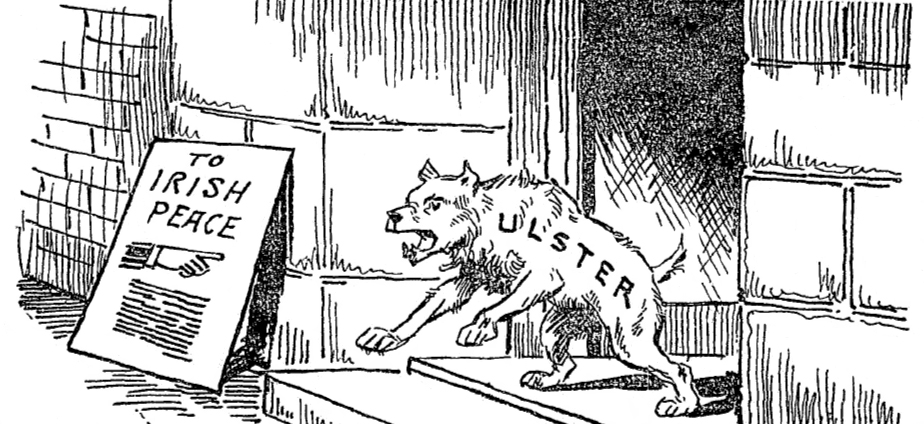Ulster leaders accused of blocking path to a settlement in peace conference
London, 11 November 1921 – The cabinet of Northern Ireland met in London yesterday and reaffirmed its unwillingness to make any more concessions that might compromise the new-found status of the Belfast parliament.
Sir James Craig, Prime Minister of Northern Ireland, arrived in London last week and attending meetings with David Lloyd George, Austen Chamberlain and Sir Laming Worthington Evans. Following these meetings, he insisted that he had ‘arranged that if and when Ulster’s interest are reached in the conference all our representatives will be asked to attend. In the meantime nothing will be settled behind our backs.’
At this point he summoned his cabinet colleagues. They met at the Savoy Hotel where Craig briefed them on developments in the ongoing Anglo-Irish peace conference insofar as he had been made aware of them. He also outlined the course that he had pursued in these meetings. After the meeting, the cabinet issued a statement in which it ‘unanimously approved of the firm attitude maintained [by Craig] in the interests of Ulster’.
The most recent proposals, to which the Ulster politicians were responding, are understood to include the establishment of Ulster as a province of an Irish Dominion controlled by an all-Ireland parliament comprising two houses. This is the type of settlement that Mr Craig’s cabinet has essentially ruled out.
The language used by James Craig has been criticised by the Irish Independent in an editorial published today. The newspaper has accused the Ulster leader and his colleagues of pursuing a ‘foolish course of identifying themselves in the grave crisis that has now arisen with unreasoning and unreasonable extremists in Belfast.’
The Independent has accused Mr Craig and his cabinet of blocking the path to a settlement for Ireland and asked whether it was the northern cabinet’s intention to ‘pit itself against the world? Such an attitude would be preposterous.’
The hard-line attitude of the Ulster unionist leader and his cabinet is nevertheless supported by the great bulk of Conservative members of the coalition government, none more so than Andrew Bonar Law who, according to friends, feels that he is honour bound by the pledges he made to protect Ulster. It is Mr Bonar Law’s belief that it would be tantamount to coercion if, after the passage of the Government of Ireland Act 1920, Ulster was to be forced against her will into a role in an all-Ireland dominion scheme similar to that of Québec in Canada.
Prof. Paul Bew, in conversation with RTÉ's Bryan Dobson, explores whether sectarianism was unavoidable in the creation of Northern Ireland
[Editor's note: This is an article from Century Ireland, a fortnightly online newspaper, written from the perspective of a journalist 100 years ago, based on news reports of the time.]





















